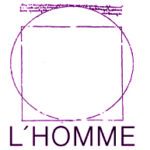 L’HOMME Z.F.G. – European Journal for Feminist History; Special issue 1/2024; Editors: Dietlind Hüchtker and Claudia Kraft (Web)
L’HOMME Z.F.G. – European Journal for Feminist History; Special issue 1/2024; Editors: Dietlind Hüchtker and Claudia Kraft (Web)
Proposals by: 15.10.2022
The Russian war of aggression has a significant impact on living and working conditions of historians, both in Ukraine and in exile. Living in war times conditions, participating in the defense of the country, and worrying about family members and the future are conditions under which historical scholarship is difficult to conduct; in addition, archives and libraries are closed and threatened with destruction or already affected. Under these circumstances, some fields of historical research seem less relevant, as for instance queer subcultures of the 1920s, less suitable for everyday life, as for instance early modern gender roles, or self-evident, such as heroic masculinity.
Nevertheless, we realize every day how important critical historiography is for the self-understanding of modern societies. The misuse of history to justify the war of aggression is a particularly shocking example, but by no means the only one, of the relevance and impact of historical narratives. Historical scholarship is highly relevant in an exceptional time like the present precisely for this reason: it can help to ground and contextualize societal debates, provide knowledge about past and present spaces of experience and ways of life, and advance the deconstruction of myths. This is also and especially true for historical topics in women’s and gender history, history of masculinities, and queer studies, whose breadth and depth can contribute to a better understanding of the historicity and diversity of events and experiences.
Against this backdrop, the journal L’HOMME decided to make one of its next issues available to Ukrainian historians as a publication venue in order to render research results on women’s and gender history, on the history of masculinities or from the field of queer studies accessible to a broader German- or English-speaking audience. An open issue is planned, which should make visible the breadth and depth of this research in Ukraine. In doing so, the editors do not exclusively focus on the war, the 21st century or Ukrainian history, but are interested in a broad range of epochs and topics. Read more and German version … (PDF)
